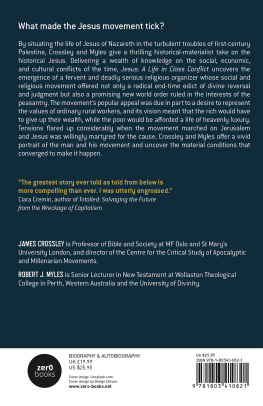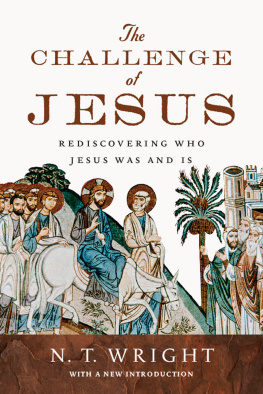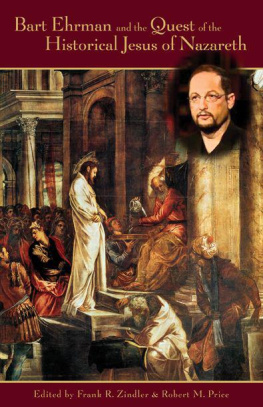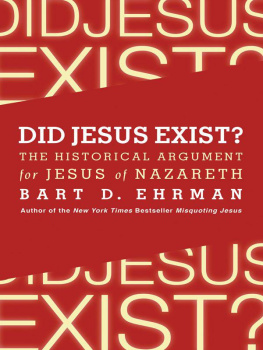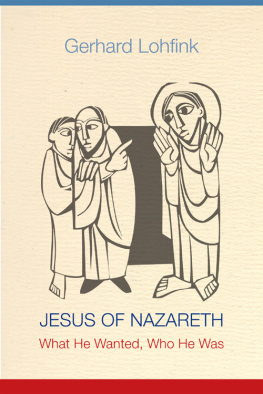What people are saying about...
Jesus: A Life in Class Conflict
Two of our most capable Marxist biblical interpreters offer a historical materialist life of Jesus, grounded in the social and material forces of Jesus age rather than on efforts to read Jesus mind. Precise, clear, accessible, and important. I can think of no better introduction to the historical Jesus for the general reader, no clearer statement on the legacy of the Jesus movement in the sweep of subsequent history, or a more worthy challenge to contemporary scholarship on Jesus and the rise of Christianity. Neil Elliott, author of Liberating Paul: The Justice of God and the Politics of the Apostle and The Arrogance of Nations: Reading Romans in the Shadow of Empire
A work of exceptional scholarship, the greatest story ever told as told from below is more compelling than ever. I was utterly engrossed. What impresses the most, though, is in how by demystifying an epic class struggle of the past lessons of strategic relevance to struggles for liberation in the present can be drawn. Essential stuff. Ciara Cremin, author of The Future is Feminine: Capitalism and the Masculine Disorder and Totalled: Salvaging the Future from the Wreckage of Capitalism
This account of the life of Jesus is neither a historical novel nor a scholarly monograph. It represents an excellent fusion of these approaches: copious and informed material information by way of well-wrought and well-written biographical narrative. The book conveys a sharp sense of the times and places, the issues and discussions, the difficulties and possibilities. A marvelous idea on the part of Crossley and Mylesaltogether well done! Fernando F. Segovia, Oberlin Graduate Professor of New Testament and Early Christianity, Vanderbilt University
This book moves on from the Third Quest for the historical Jesus, so focused on seeing Jesus as a great innovator within a particular cultural, religious and societal context. Seeing such portraits as romanticized and overly idealized, the interest here is on the social and economic forces that produced the Jesus movement, so that Jesus and his associates are seen as responding to the material upheavals of the time. Joan E. Taylor, Professor of Christian Origins and Second Temple Judaism, Kings College London
Crossley and Myles have recaptured the mind-blowing excitement generated by the original quest to distinguish the Jesus of history behind the myth. Although Jesus scholarship has struggled to let go of the fantasy of a man who dropped from the sky, this book places Jesus firmly on his feet, a product of his agrarian class and imperial repression. Crossley and Myles have found Jesus: in the Galilean dirt under his fingernails. Deane Galbraith, Lecturer in Religion, University of Otago


First published by Zero Books, 2023
Zero Books is an imprint of John Hunt Publishing Ltd., No. 3 East St., Alresford,
Hampshire SO24 9EE, UK
www.johnhuntpublishing.com
www.zero-books.net
For distributor details and how to order please visit the Ordering section on our website.
Text copyright: James Crossley, Robert J. Myles 2022
ISBN: 978 1 80341 082 1
978 1 80341 083 8 (ebook)
Library of Congress Control Number: 2021947481
All rights reserved. Except for brief quotations in critical articles or reviews, no part of this book may be reproduced in any manner without prior written permission from the publishers.
The rights of James Crossley, Robert J. Myles as author have been asserted in accordance with the Copyright, Designs and Patents Act 1988.
A CIP catalogue record for this book is available from the British Library.
Design: Stuart Davies
UK: Printed and bound by CPI Group (UK) Ltd, Croydon, CR0 4YY
Printed in North America by CPI GPS partners
We operate a distinctive and ethical publishing philosophy in all areas of our business, from our global network of authors to production and worldwide distribution.
Contents
Preface
What if the greatest event in human history was erased? Such a question is posed by the promotional material for Assassin 33 A.D., a 2020 faith-based thriller written and directed by Jim Carroll. The scintillating plot hinges on an Islamist terror conspiracy to go back in time to first-century Palestine and assassinate Jesus of Nazareth, and hence change the course of world history. Its the ultimate jihad; eliminate Christianity by killing Jesus before the resurrection, says its title character, the inventor of the time machine, upon discovering the great conspiracy unfolding before his eyes.
Despite its one-dimensional and clichd war on terror slant, not to mention the complicated paradoxes of time travel, and the obvious plot hole that Jesus was already put to death before reports of his resurrection, the film can be critiqued on another level: namely, its unquestioned premise that the course of world history pivots exclusively on the individual exploits of so-called Great Men. In direct opposition to this dominant ideology, we take the view that even if someone was able to successfully travel back in time and assassinate Jesus, they would not necessarily alter the course of human history. While details would obviously change, the same intersecting historical and material forces would still largely exist, and someone else would inevitably rise up to take his place.
The Quest of the Historical Jesus has an extensive intellectual history, beginning in the European Enlightenment and continuing into the twenty-first century. As with any number of scholarly enterprises, the Jesus quest overlaps with the rise of capitalism as a global force. The work you hold in your hands is the fruitful collaboration of two scholars of Jesus and early Christianity who have a shared interest in Marxist historiography and the ways in which struggles from the past may give us insight into the struggles we face today. We have written this book with the educated non-specialist in mind. We seek to unpack the life of Jesus and the early Jesus movement within its original historical context of first-century Palestine but in a way relevant for all interested in the history of class conflict, irrespective of individual religious sympathies or proclivities. An orienting assumption is: Jesus was not just a religious leader. And this prompts us to write not another dry biography of a Great Man from the past. Rather, there are important lessons about the broader unfolding of history when the study of Jesus is properly contextualized as a life in class conflict. We offer up this historical materialist life of Jesus as part of the Next Quest and as a deliberate point of contrast to the perpetual proliferation of the many neoliberal lives of Jesus produced, mass-marketed, and consumed over the past several decades.
The ideas presented in this book have benefited from the critical suggestions of several colleagues and friends. We forego the usual practice of naming a long list of specific individuals, but we have, as always, appreciated their help, and anticipate that, come the revolution, they will enjoy glorious reward.
We note here that when quoting the Bible, we follow the English text of the New Revised Standard Version. The various books that make up the New Testament were originally composed in Greek. Greek words have been transliterated into English for the aid of readers, but if readers want to consult the Greek text then we recommend the Nestle-Aland,
Next page
